Straight Talk
Devotional Thoughts
The Weight of Words: Reflect on the significance of your words. Jesus taught that our speech reveals the state of our hearts (Matthew 12:34). Take time to examine what your words say about you. Are they truthful, encouraging, and reflective of God’s character? Ask the Holy Spirit to help you align your speech with His truth.
The Challenge of Honesty: Consider the societal pressures that encourage exaggeration or deception. Identify situations in your life where you might be tempted to shade the truth. Pray for the courage to speak honestly, even when it feels uncomfortable or risky.
Vows and Integrity: Think about the commitments you have made—marriage vows, promises to friends, or responsibilities at work. Reflect on the weight these commitments carry and ask God to help you fulfill them with integrity. How can you demonstrate faithfulness in your relationships today?
A Culture of Truthfulness: As a member of the Body of Christ, consider how you can contribute to a culture of honesty in your church or community. What steps can you take to encourage others to embrace radical truthfulness? Perhaps it involves having difficult conversations or being a model of transparency and accountability.
Scripture as a Foundation: Meditate on John 17:17, where Jesus prays, “Sanctify them in the truth; Your word is truth.” Spend time in Scripture, allowing God’s Word to shape your understanding of truth. How can immersing yourself in the Bible strengthen your commitment to honesty?
The Impact of Deception: Reflect on the story of Ananias and Sapphira (Acts 5:1-11). Consider how their deception affected not just themselves but the entire community. What does this teach you about the seriousness of dishonesty? Pray for a heart that values truth and for the wisdom to recognize the consequences of untruthfulness.
Radical Honesty in Action: Think about how you can practice radical honesty in your daily interactions. This could mean admitting mistakes, giving honest feedback, or being transparent about your struggles. Ask God to help you develop a habit of truthfulness that reflects His character.
Seeking Forgiveness: If you recognize patterns of dishonesty in your life, take a moment to confess these to God. Ask for His forgiveness and for the strength to change. Remember that His grace empowers you to walk in truth.
Prayer for Truthfulness: End your devotional time with a prayer, asking the Lord to help you embody radical truthfulness. Invite Him to guide your conversations and actions, making you a vessel of His truth in a world that desperately needs it.
By reflecting on these themes, you can deepen your understanding of the call to radical truthfulness and integrate it into your daily life as a faithful follower of Christ.
Discussion Questions
Understanding Truth:
How do you define truth in your daily life? Do you think the definition of truth has changed in our society? Why or why not?
Cynicism and Honesty:
Rev. Smith mentions a growing cynicism regarding honesty. Have you experienced this in your own life? How does it affect your relationships and trust in others?
The Role of Oaths:
Why do you think people feel the need to take oaths or make promises? In what ways can our reliance on oaths reflect a lack of trustworthiness in our everyday speech?
Biblical Examples:
Reflect on the story of Ananias and Sapphira. What lessons can we draw about honesty and integrity from their experience? How does their story resonate with your understanding of truthfulness?
Personal Reflection:
Can you identify areas in your life where you struggle with honesty? What specific situations challenge your commitment to being truthful?
Creating a Culture of Truth:
How can we as a community encourage one another to practice radical truthfulness? What practical steps can we take to promote a culture of honesty within our church or group?
Scriptural Foundation:
Discuss the importance of Scripture in shaping our understanding of truth. How can spending time in God’s Word help us live out a commitment to honesty?
Accountability:
How can we hold each other accountable in our commitment to truthfulness? What role can accountability play in overcoming the temptation to lie or exaggerate?
Impact of Lies:
The sermon emphasizes that deception wounds the body of Christ. In what ways have you seen dishonesty affect relationships within the church or community? How can we heal from these wounds?
Prayer and Truth:
How can prayer help you cultivate a heart of truthfulness? What specific prayers can you commit to in order to seek God’s guidance in your journey toward radical honesty?
These questions can facilitate thoughtful discussion and reflection on the sermon’s themes, encouraging participants to engage deeply with the call to live out radical truthfulness in their lives.
